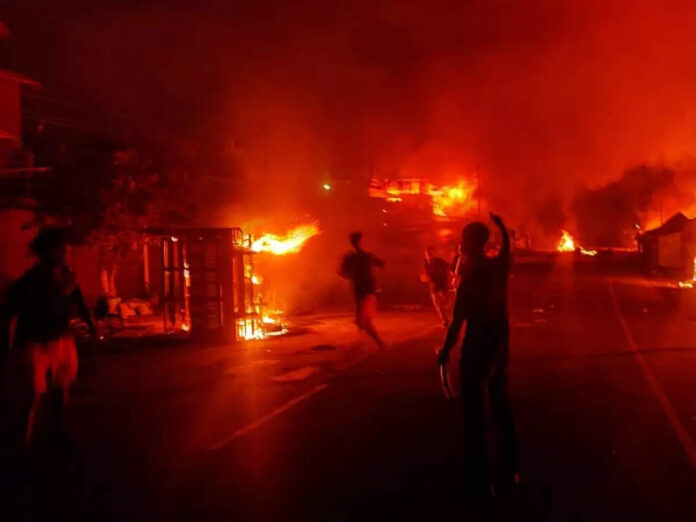In the picturesque state of Manipur, India, a horrifying incident has sparked global outrage and raised serious questions about the role of the police in ensuring justice for the victims. On 4th May, a video went viral, showing two women being paraded naked by a mob of men, and the shocking details of the event have left the world in disbelief.
The incident occurred amidst violent ethnic clashes that have been engulfing Manipur for over two months. Tensions between the Meitei and Kuki tribal communities have led to tragic consequences, with at least 130 people dead and 60,000 displaced. The survivors seen in the disturbing video are Kukis, who were attacked by men from the Meitei group while trying to escape after their village was attacked and burnt down by a massive mob.
According to the survivors’ written complaint, a relative of one of the women had lodged a police complaint just days after the incident, providing clear evidence of the attackers’ identities. Shockingly, it was alleged that the mob forcibly took the survivors from police custody, and two of the victims accused the police of being present but failing to intervene. These damning accusations were neither confirmed nor denied by the authorities, further fueling public outrage.
The delay in action by the police has prompted widespread criticism and raised concerns about the capacity of the Manipur police force, reportedly dealing with over 6,000 complaints related to the ongoing violence. A senior government official has suggested that the small size of the police force and the delayed receipt of the video might have contributed to the sluggish response.
However, it’s evident that this incident has struck a chord with people across India and beyond. The footage of the traumatized women, pleading for mercy, has ignited anger and frustration, leading to protests and demands for swift and severe punishment for the perpetrators. Chief Justice of India DY Chandrachud expressed deep concern, warning that the Supreme Court would intervene if necessary, while opposition lawmakers demanded a parliamentary debate on the issue.

After days of public outcry, the government finally took action, with the police arresting four men on charges of gang rape and promising more arrests soon. Prime Minister Narendra Modi, who had remained silent on the matter, broke his silence and called the incident a shameful blot on India’s conscience, vowing that no guilty party would escape justice. Manipur Chief Minister Biren Singh also joined the chorus, demanding capital punishment for those involved.
While the recent arrests provide a glimmer of hope for the victims’ families and supporters, critics argue that the delayed action does little to inspire confidence in the authorities. Local Kuki tribal and women’s organizations have come forward with allegations of several other women being raped in the state, highlighting the need for a comprehensive investigation into these heinous crimes.
This ghastly incident has exposed the need for urgent reforms in the police and justice system to ensure that such atrocities are promptly and effectively addressed. It has also brought to light the importance of tackling the root causes of the ethnic clashes in Manipur and providing support and protection to vulnerable communities caught in the crossfire.
The incident in Manipur has shattered the lives of the survivors and shocked the world, demanding an immediate and resolute response from authorities. The global outrage is a call for action and change, urging society to stand united against such horrific acts and ensure that justice is served, and such incidents never recur.


